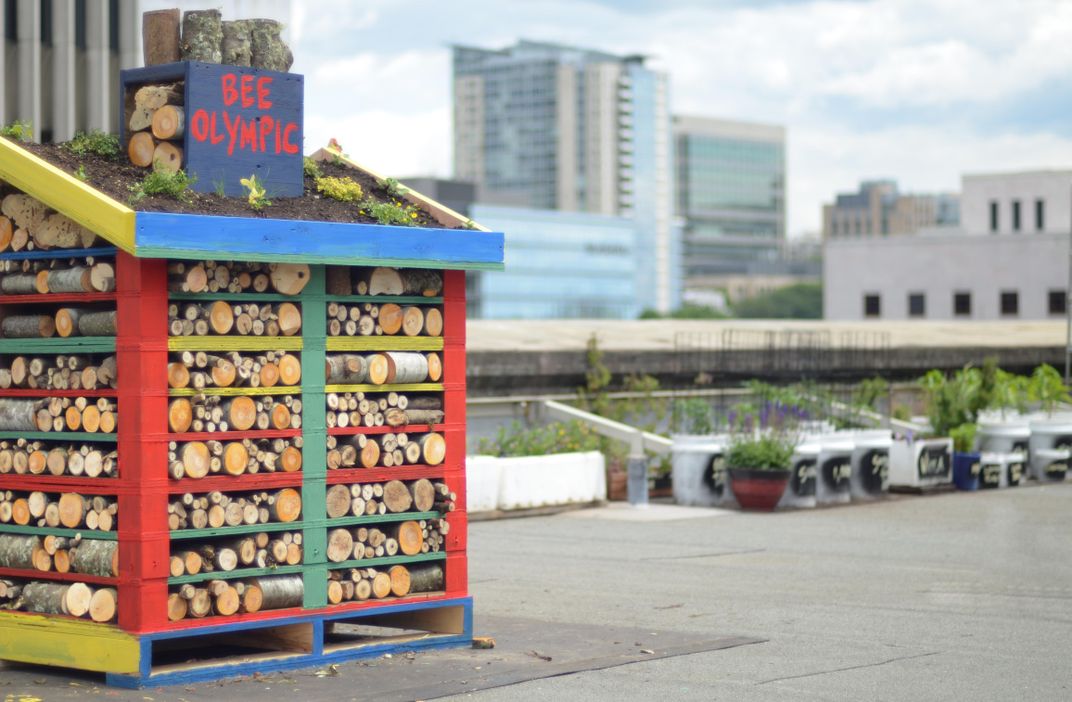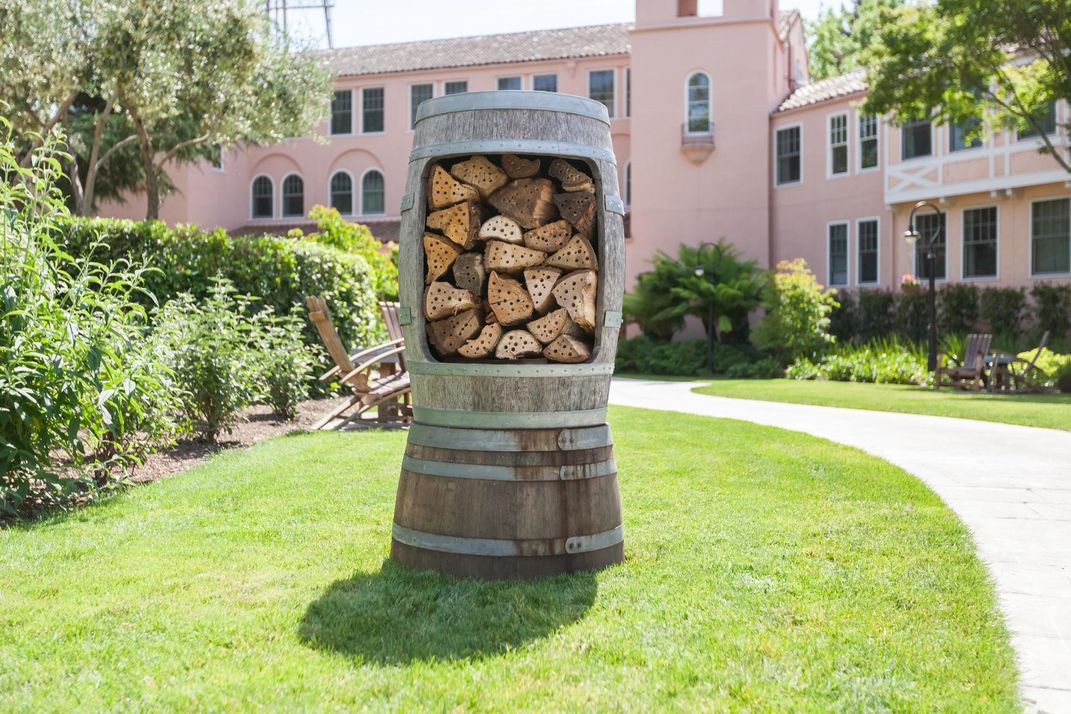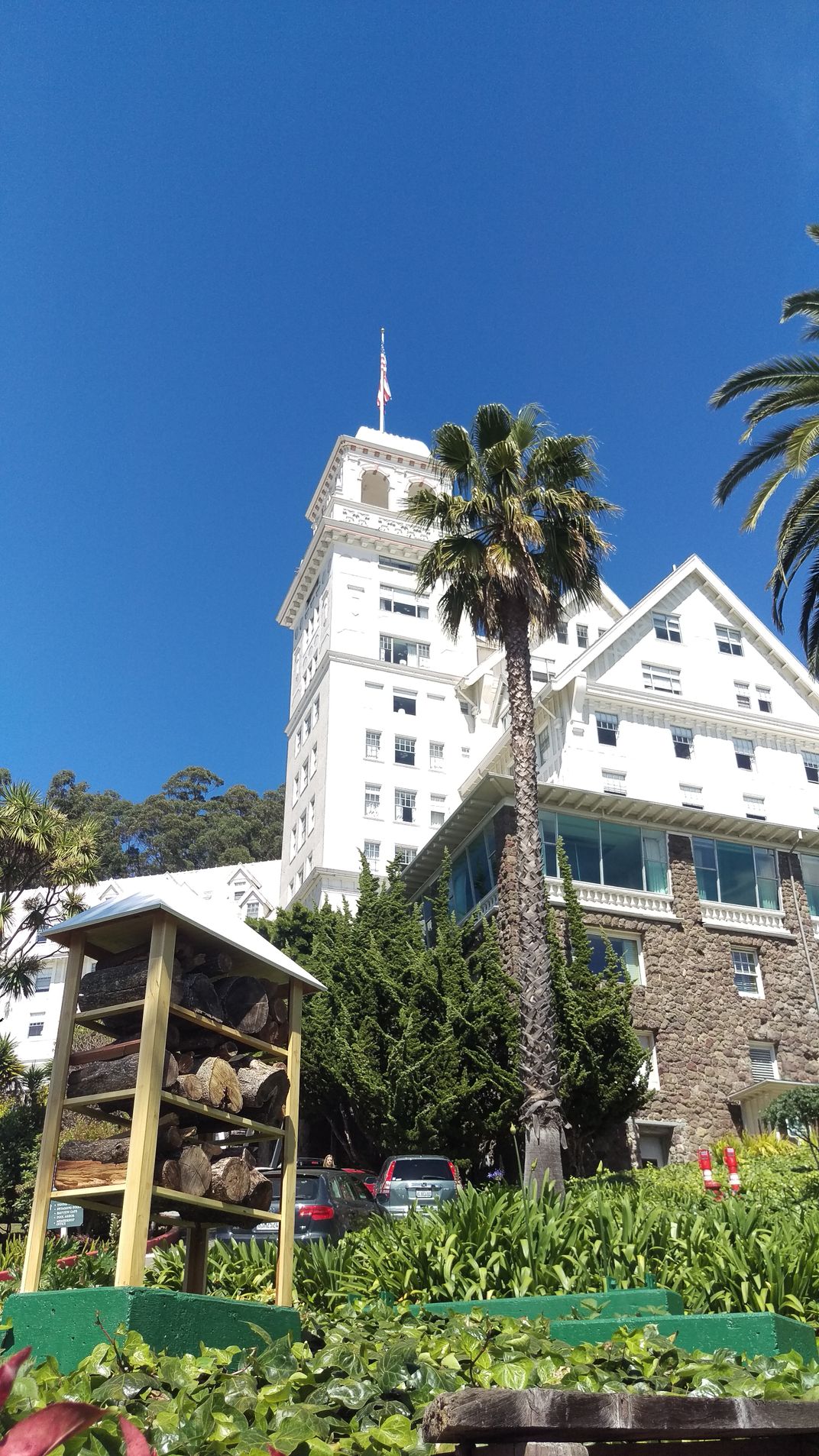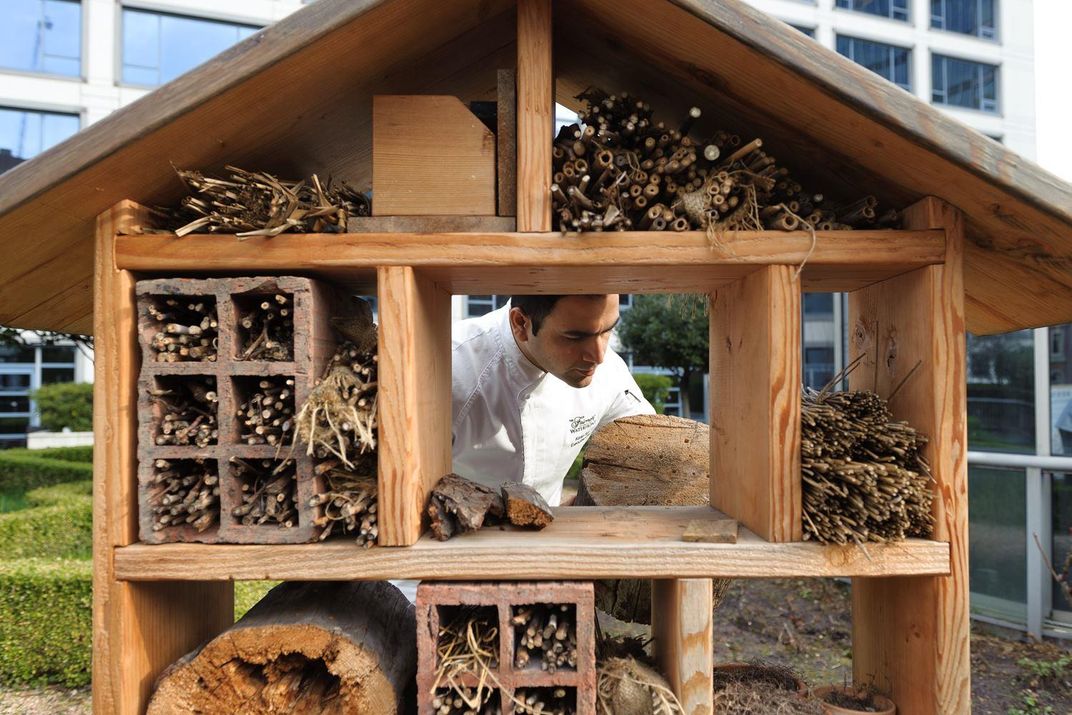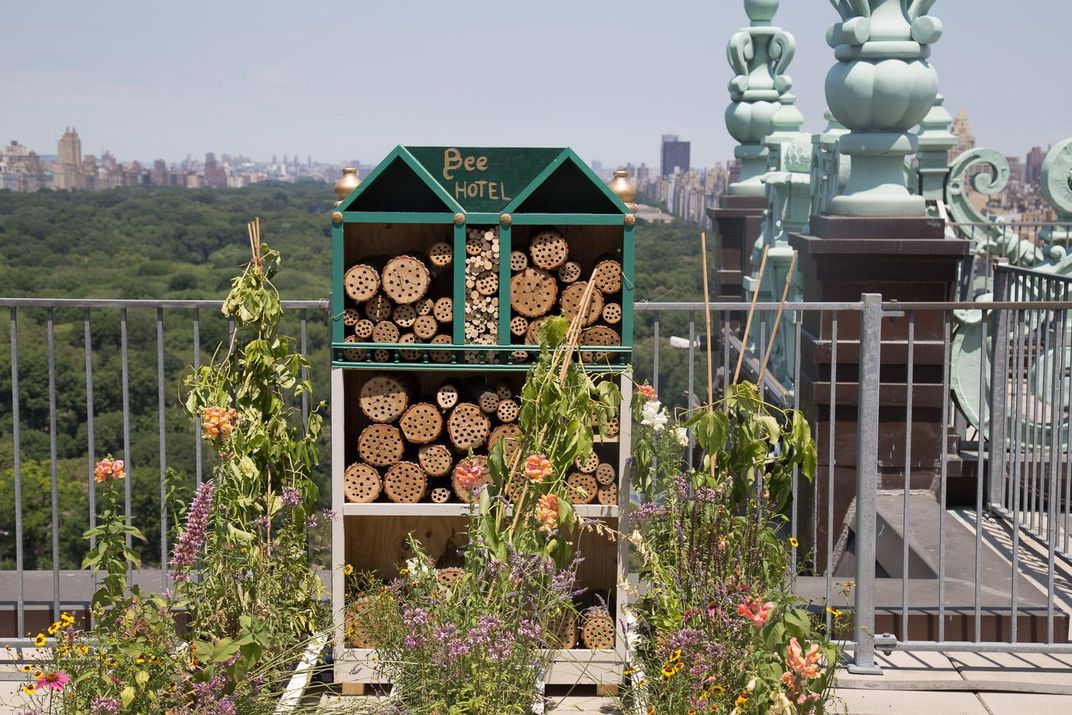Forget the Hive, Now Wild Bees Can Check in to These Swanky Hotels
Don’t six-legged guests also deserve the best bang for their buzz?
Everyone who has ever been on a long road trip knows that feeling of relief that comes when they finally find a hotel to check into for a few hours sleep after hours of driving. But humans aren’t the only ones that benefit from taking a breather after a long day’s journey: so do bees when they are out and about searching for food to bring back to their hives. Now, wild bees can check in to their own five-star experience at bee hotels around North America, Tracey Taylor reports for Berkeleyside.
Over the last decade, worries about habitat loss coupled with a phenomenon known as colony collapse disorder have raised concerns among environmentalists about keeping bee populations healthy. Bee stings may be painful, but a world without them would be far worse: according to the National Resources Defense Council, wild bees are responsible for pollinating at least a third of all crops and nearly all wild plants.
Researchers have since traced the disorder, which caused entire bee colonies to vanish seemingly into thin air, to a combination of parasites and pesticides. Thanks to regulation and how fast bees reproduce, experts now say that bees are nowhere near the brink of extinction, Matt Miller reports for Slate. However, the scare did encourage people to reconsider just how important bees are to the environment and our own food supply, helping spark movements to create new habitats for the busy bugs in the middle of urban environments.
“Often we hear people complain that they are afraid when they see a bee in the garden, but the reality is that not seeing a bee in a garden is a much scarier proposition,” Laurie Adams, executive director of the non-profit group Pollinator Partnership, says in a statement.
While beehives are the core of the colony, not all of its members live at the central location. Many will take up residences in other, smaller nests that are used mainly for resting and reproducing, not making honey. To aid these weary bees on their long trips to find food for their fellows, Fairmont Hotels & Resorts has installed custom bee hotels at 15 locations across North America to give the busy bees a place to kick back and relax, Taylor reports.
“Habitat is more than just a place to feed – it’s a place to live and reproduce. The availability of good nesting sites for bees limits how many bees are present in a community,” Fairmont Hotels & Resorts writes on its website. "Building a bee hotel serves as habitat for local, urban bees, and also helps to raise awareness about not only the diversity of different bees but the many ways in which the public and businesses can help."
The company has worked with organizations like Pollinator Partnership to build pollinator gardens alongside the hotels to make sure their six-legged guests get the best bang for their buzz. Each bee hotel is made of wooden logs with small holes drilled into them to provide lodging for the weary bugs, and the structures are custom-made from local materials.
By giving the bugs a place to rest their wings, these bee hotels help make the urban world a little more inviting. And this isn't the only initiative in place to give bees a sweet stay. As Rachel Thompson reports for Mashable, British tea brand Taylors of Harrogate recently created its own Wes Anderson-inspired miniature bee hotel, which is already drawing its own buzz.
